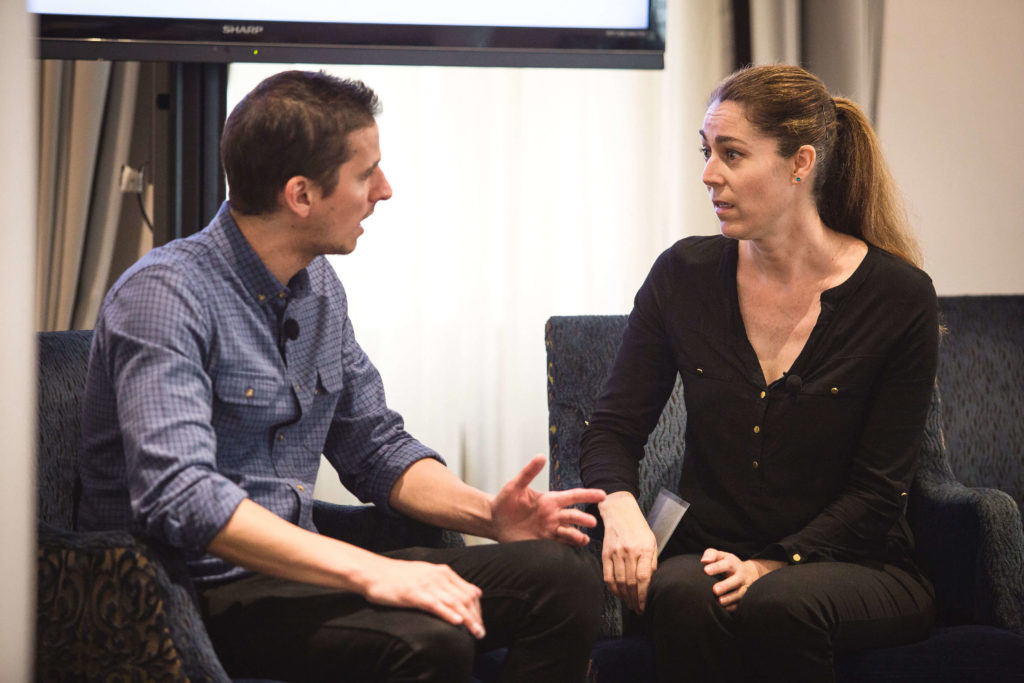In iHR Australia’s summary investigations report, on average between 30-40% of substantiated cases of inappropriate and unlawful workplace behaviour, management avoidance was a contributing factor. This isn’t surprising according to iHR Australia’s Managing Director Stephen Bell, “It’s often easier to avoid having a challenging discussion about poor behaviour. Especially when the poor behaviour comes from a person who is a high performer, a very influential person or a friend.” The importance of having challenging conversations cannot be underestimated. According to Bell, allowing patterns of poor behaviour to go unchecked is like leaving a live electrical wire hanging from the ceiling,…
In iHR Australia’s summary investigations report, on average between 30-40% of substantiated cases of inappropriate and unlawful workplace behaviour, management avoidance was a contributing factor. This isn’t surprising according to iHR Australia’s Managing Director Stephen Bell, “It’s often easier to avoid having a challenging discussion about poor behaviour. Especially when the poor behaviour comes from a person who is a high performer, a very influential person or a friend.”

The importance of having challenging conversations cannot be underestimated. According to Bell, allowing patterns of poor behaviour to go unchecked is like leaving a live electrical wire hanging from the ceiling, allowing people to walk past it, and do nothing about it. “Having a constructive discussion with a coaching focus can make all the difference and mitigate legal risk. Any person in a leadership role should be equipped to confront poor behaviour face to face with a team member,” says Bell.
The truth is that you cannot make the majority of managers enjoy discussing poor performance or behaviour. However, managers can be taught to be well prepared for having challenging conversations. Bell says, “It’s quite typical for people in leadership roles to think they should do something about poor behaviour, but not even know where to start. So there is a tendency to just ‘let it go’.”
Can You Teach a Manager to Have a Challenging Discussion?
For many people in leadership roles the issue is not that they don’t want to have that difficult discussion, rather it is a case of not knowing the best approach. According to Bell, it’s about mindset and planning, “In iHR Australia’s Custodians of Culture and Addressing Inappropriate Behaviour training programs we focus on planning for challenging conversations the same way a modern-day elite sporting coach or leading choreographer in a ballet company would. You can’t just have conversations that are focused on improvement off the cuff. You are unlikely to get the desired outcome.”
With this in mind, iHR Australia’s eLearning training program emphasises preparation. The interactive activities actually get the learner to observe a coaching approach and practice preparing for a challenging conversation. Bell says, “We really want our learners to understand that being a coach on behaviour is part of their role as a professional manager or supervisor. They can’t just say the first thing that comes into their head. Professionals don’t do that. My strong advice is that if you observe, or are made aware of inappropriate behaviour, don’t deal with it on the spot unless there are especially threatening circumstances. Take your time to prepare and provide specific examples of the inappropriate behaviours, discuss the likely effects it will have and address how the person may act more appropriately or effectively in the future.”
The iHR Australia view is that not dealing with patterns of poor behaviour is a risk that organisations that value their culture and brand cannot afford to take. It is also an important skill given the fact that every manager and supervisor has a duty of care to take all reasonable actions to prevent unnecessary damage occurring to those for whom they are responsible. According to Bell assuming the majority of managers and supervisors are equipped to handle such difficult conversations without training is naive. Concludes Bell, “If you want to protect the organisation and its management from unnecessary pain and potential litigation, then you need to train managers to deal with high risk behaviour.”
Learn more about iHR Australia’s face-to-face and eLearning training options focused on Addressing Inappropriate Behaviour, Managing and Coaching Performance, and up skilling Front Line Managers.
Recent articles
![Lee Witherden v DP World Sydney Limited [2025] FWC 294 (2) Workplace policies](https://ihraustralia.com/wp-content/uploads/bb-plugin/cache/Lee-Witherden-v-DP-World-Sydney-Limited-2025-FWC-294-2-1024x539-landscape-dc731230e07743843bfa2c830cc42561-.png)
Smart Workplace Policies, Stronger Cultures: Compliance Made Clear


